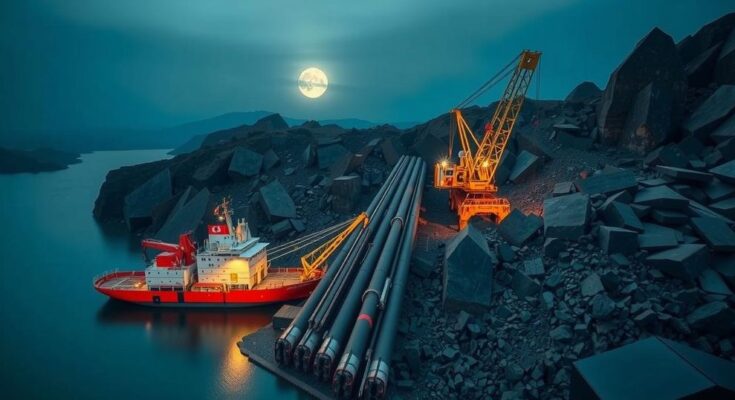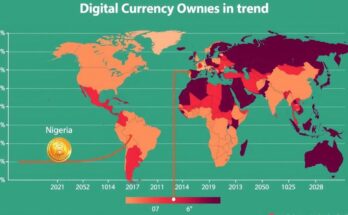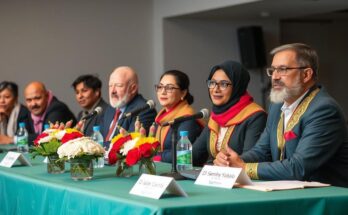The Democratic Republic of Congo is experiencing increased Chinese investment in mining, particularly in the copper and cobalt sectors, with the Tenke Fungurume Mining (TFM) project playing a pivotal role. Geopolitical rivalries and increasing global demand for critical metals drive this investment. However, the DRC faces challenges like corruption and infrastructure deficits, raising the necessity for sustainable practices and governance reform.
The Democratic Republic of Congo (DRC) is experiencing a major surge in Chinese mining investment, particularly in the Katanga Plateau, which holds the world’s largest copper mine, Tenke Fungurume Mining (TFM). Managed by the Chinese company CMOC Group Ltd. and the local Gecamines, TFM represents a significant player in the global commodities market after navigating a range of challenges to maintain its 80% ownership stake while committing to an $800 million equity transfer. This development occurs against the backdrop of increasing global demand for copper and cobalt, critical metals necessary for the energy transition and electric vehicle production.
In a climate where geopolitical rivalries are intensifying, the DRC government, having entered partnerships with major commodity companies such as Glencore and Trafigura, aims to leverage its vast mineral resources effectively. Reports indicate that CMOC estimates TFM’s output to increase by 60% this year, potentially positioning Chinese firms as dominant agents in this highly lucrative market. Additionally, experts note that Africa’s mining sector presents high profitability and manageable risks, attracting significant Chinese investments exceeding $20 billion.
However, the DRC’s mining landscape is rife with obstacles, including corruption, infrastructural deficiencies, and an unstable power supply, complicating efforts to tap into its vast resources. In response, Kizito Pakabomba Kapinga, the DRC Minister of Mines, emphasized the need for infrastructure development and accountability to attract foreign investment. The DRC’s long-term aspirations include transforming from merely an exporter of raw minerals to a key player in the battery supply chain for the burgeoning clean energy market.
Chinese firms are already predominant in the DRC’s copper and cobalt sectors, exemplified by CMOC’s pivotal role in cobalt production expansion. This movement is also mirrored by the broader trend of increasing Chinese equipment use, which is enhancing efficiency and slashing production costs significantly. Despite these successes, industry experts indicate that there is a critical need for these companies to improve on safety standards and long-term operational planning to elevate their global reputation. The rising competition from Western nations, prompted by geopolitical tensions, adds another layer of complexity to the DRC’s mining industry dynamics. President Tshisekedi’s administration is working to balance investments from both Chinese and Western firms, seeking to utilize local resources to foster an integrated value chain.
The Democratic Republic of Congo is a nation rich in mineral resources, notably holding 15% of the world’s copper deposits and over 50% of cobalt reserves. The potential for wealth generation through mining is significant, yet the DRC struggles with systemic issues such as corruption, weak infrastructure, and power shortages, which hinder development. China has emerged as a major player in the DRC’s mining sector, significantly increasing investments in recent years since the sector opened to foreign investment in 2002. This influx of Chinese capital is spurred by the global transition to clean energy, which is generating unprecedented demand for essential metals such as copper and cobalt.
In summary, the Democratic Republic of Congo stands at a critical juncture in its mining industry, with Chinese firms leading investments amidst significant geopolitical tensions. While the influx of Chinese capital has invigorated the sector, yielding promising production forecasts, challenges such as infrastructural shortcomings and governance issues remain pressing. Balancing foreign investments while addressing local demands for economic empowerment and sustainable practices will be crucial as the DRC aims to transition from raw material dependency to an integrated industrial economy in the coming years.
Original Source: www.thinkchina.sg




